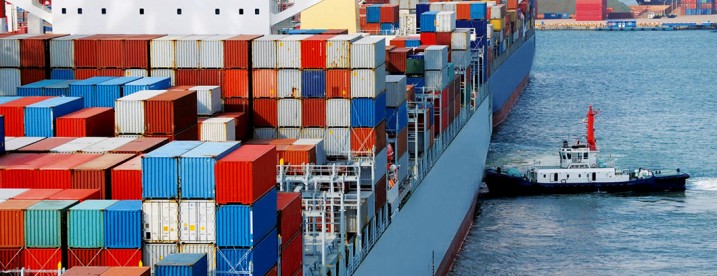
Illicit Financial Flows

Illicit financial flows (IFFs) are illegal movements of money or capital from one country to another. GFI classifies this movement as an illicit flow when funds are illegally earned, transferred, and/or utilized across an international border. Some examples of illicit financial flows might include:
- A drug cartel using trade-based money laundering techniques to mix legal money from the sale of used cars with illegal money from drug sales;
- An importer using trade misinvoicing to evade customs duties, value-added tax, or income taxes;
- A corrupt public official using an anonymous shell company to transfer dirty money to a bank account in the United States;
- A human trafficker carrying a briefcase of cash across the border and depositing it in a foreign bank; or
- A member of a terrorist organization wiring money from one region to an operative in another.
GFI estimates that the annual value of trade-related IFFs in and out of developing countries has amounted to, on average, about 20 percent of the value of their total trade with advanced economies.
Click here for a thorough briefing on methodologies used by GFI to analyze trade-related illicit financial flows.
What Impact Do Illicit Financial Flows Have on Developing Countries?
Illicit financial flows result in a loss of what are often desperately needed resources to fund public initiatives or critical investments. Collectively, for developing countries, this often represents hundreds of millions of dollars in lost or foregone tax revenues that could have otherwise been collected and used for supporting sustainable economic growth, creating jobs, reducing inequality, poverty, and addressing climate change, among other things. With billions of dollars estimated to be illicitly leaving developing countries every year, this drain of public resources undermines the efforts of countries to mobilize more domestic resources in order to meet the internationally-agreed Sustainable Development Goals (SDGs) by the target date of 2030 (See SDG 16.4.1).
While much attention is given to the problem of illicit capital outflows, the problem of illicit financial inflows is also a serious issue. Common reasons for illicit inflows are tax evasion and for financing the illegal activities of international criminal networks engaged in human trafficking and smuggling of arms, drugs and valuable minerals. Both illicit outflows and inflows result in the same problem: taxes not being paid to governments.
Where Does the Money Go?
Every dollar that leaves one country must end up in another. Very often, this means that illicit financial outflows from developing countries ultimately end up in banks in developed countries like the United States and United Kingdom, as well as in tax havens like Switzerland, British Virgin Islands, or Singapore.
This does not happen by accident. Many countries and their institutions actively facilitate—and reap enormous profits from—the theft of massive amounts of money from developing countries. GFI believes developed countries have a responsibility alongside developing countries to curtail the flow of illicit money.
What Can We Do About Illicit Financial Flows?
GFI believes the most effective way to limit illicit financial flows is to increase financial transparency and recommends governments enact policies to:
- Detect and deter cross-border tax evasion;
- Eliminate anonymous shell companies;
- Strengthen anti-money laundering laws and practices;
- Work to curtail trade misinvoicing; and
- Improve transparency of multinational corporations.
